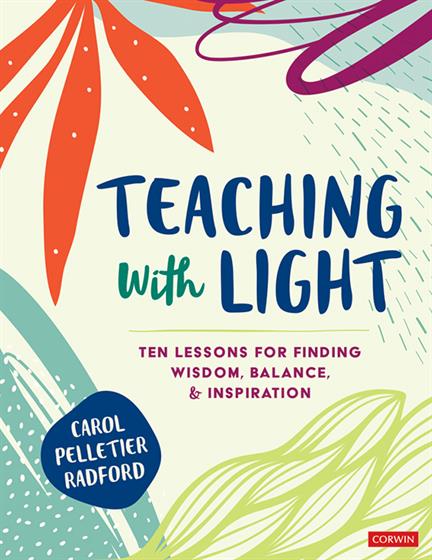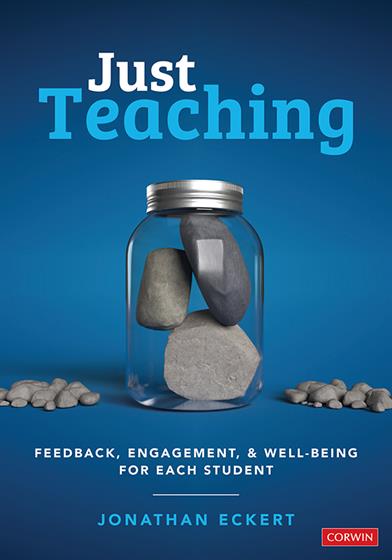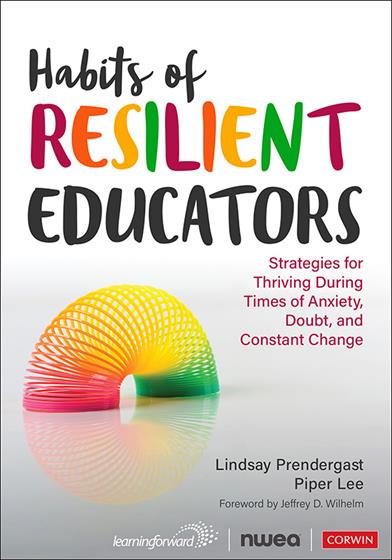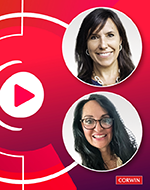
Habits for Resilient Teachers
Guest(s): Lindsay Prendergast, Piper Lee and Megan Martens
Date: 03/20/2024
Run time: 45:26
Season 2, Episode 3
Listen, review and subscribe on: Apple, Spotify, YouTube,
Episode Audio
Series 2 Teacher to Teacher Podcast
[00:00:00.00] [MUSIC PLAYING]
[00:00:03.02] ANNOUNCER: Welcome to Corwin's Teacher to Teacher podcast with host Carol Pelletier Radford. Carol is an experienced classroom teacher, university educator, founder of mentoringinaction.com, and author of four bestselling professional books for teachers. She believes the best form of professional learning happens when teachers engage in authentic conversations and share their wisdom.
[00:00:23.97] In every episode, Carol and her guests share stories about pivotal moments in their careers, successful classroom strategies, and personal actions they take to minimize stress and stay healthy. The Teacher to Teacher podcast is a place to engage in authentic conversation and reflection with experienced educators. We hope these conversations will energize you, keep you inspired, and remind you why you chose to become a teacher.
[00:00:49.78] TORI BACHMAN: Hello. Welcome to the Teacher to Teacher podcast, sharing our wisdom with our host, Carol Radford. I am Tori Bachman, a Corwin editor and co-organizer of this podcast which we've created for teachers at all levels who are searching for practical wisdom they can use in their classrooms. We believe we're all constantly learning and we're learning together.
[00:01:09.87] This episode is a bit special because we have three educators here with Carol to share their wisdom. So maybe we should actually call it Teacher to Teacher to Teacher, I don't know. And I am happy to introduce our guests to you now. We have Piper Lee, Lindsay Prendergast, and Megan Martens.
[00:01:26.94] Piper Lee has more than 26 years of experience in education, including teaching, administration, instructional coaching, leadership coaching, professional learning facilitation and now, she's a national presenter. Piper's passion for student and adult learning and improving effective teaching and student success in learning ignited her pursuit of working as an instructional coach nationally.
[00:01:50.47] While participating with educators across the country, Piper has learned and lives the philosophy that rigorous relationships help to create transformative schools and impact every aspect of our lives. Wow! Piper, you've had such a tremendous career and now, you can add published author to this list of professional accomplishments, too. Welcome to the Teacher to Teacher podcast.
[00:02:15.27] PIPER LEE: Thank you so much, Tori. This is just such an honor to be able to link arms with other educators and pause and celebrate our educators that are working so diligently with our students.
[00:02:27.78] TORI BACHMAN: Thank you. We're so happy you're here. And we also have Lindsay Prendergast. Lindsay has served schools and districts across the globe for nearly two decades as a leadership coach, a consultant principal, counselor, and teacher. Dr. Prendergast is currently the Assistant Director of learning experiences for the Danielson Group, founders of The Danielson Framework for Teaching. Piper and Lindsay have co-authored the new book titled, Habits of Resilient Educators Strategies for Thriving During Times of Anxiety, Doubt, and Constant Change. And I think this is one we could all use right now and probably always. Welcome to the podcast, Lindsay. Thanks for being here with us.
[00:03:08.34] LINDSAY PRENDERGAST: Thank you so much. It's really an honor to be here. We're super excited to have a conversation about teaching, one of my loves my passions. So honored. Thank you.
[00:03:18.13] TORI BACHMAN: Of course. We're excited about this one. And want to introduce Megan Martens. Megan is a kindergarten teacher in Volusia County, Florida where she was a top-five finalist for Teacher of the Year in the county. She's a member of Volusia LEADS and a mentor in Volusia MENTORS, both are grassroots projects where Megan collaborated with teacher leaders to grow the programs.
[00:03:40.57] Megan serves on her school's leadership team and on several committees, and she's been a club advisor for FFEA, which stands for Florida's Future Educators of America, for nine years. Megan is also one of the educators who's featured in Carol's recent book titled, When I Started Teaching I Wish I Had Known. Weekly Wisdom for Beginning Teachers. Hey, Megan.
[00:04:03.64] MEGAN MARTENS: Hi. Thank you so much. This is such an honor to be here and I'm just happy to have this platform for us to learn with each other and just grow and inspire teachers that are listening, so thank you.
[00:04:16.03] TORI BACHMAN: Of course. Thanks, Megan. We're happy that you're here. Thanks for making time to be here with us.
[00:04:20.14] MEGAN MARTENS: Absolutely.
[00:04:21.07] TORI BACHMAN: We have all been looking forward to this conversation and we appreciate this time to learn with the three of you and with Carol. So now, I'm going to turn it over to Carol.
[00:04:29.59] CAROL RADFORD: Thanks, Tori. All I can say is wow, wow, wow. Look at the wisdom that we have as guests on this podcast. The years of experience and the importance of this podcast, Teacher to Teacher to Teacher, is that we are identifying and acknowledging that we, teachers that have been in the classroom, have the expertise and the wisdom to pay it forward and share with each other in unique ways through writing, and teaching, and leadership. So I'm excited. So let's just dive in.
[00:05:11.50] I understand you all have lengthy resumes, but let's just get a snapshot for what you're doing right now. So I know that Lindsay and Piper are co-authors-- I'm interested in that connection as well-- and what you're doing and then we'll talk to Megan. So how about Piper, what are you focused on right now in your career? Where are you?
[00:05:37.65] PIPER LEE: Right now, I'm super excited. I'm in Clark County. I've been working with the district leaders here, really looking at how to be successful with achievement and growth for students and teachers. I've been able to, almost on a daily basis, be in buildings working elbow-to-elbow with teachers and, of course, that means some with students as well. And that keeps us all going. I have worked nationally as a leadership instructional coach but my heart is really with teachers. I love teaching personally and I love the compassion and resiliency that teachers have to offer.
[00:06:22.18] CAROL RADFORD: And we're going to talk more about your book and this practical strategies because our listeners are really looking for practical things that they can do because they're all pretty busy. And I'm looking forward to unpacking that a little with you. So Lindsay, where are you right now? Where's your career focus? And maybe you could just tell us how you met Piper and ended up writing the book that probably will tie-in.
[00:06:51.40] LINDSAY PRENDERGAST: OK. Super. Yes. So I, currently, am the Assistant Director of Learning Experiences at the Danielson Group and what that means, I spend my days now traveling, visiting schools and districts in support of teachers. We have a quote in the organization that says "When teachers thrive, students thrive" and that in and of itself kind of expresses a philosophy by which I try to ground my work and my life, and a part of an organization I just wanted to continue to be a part of.
[00:07:18.93] I'm not in the classroom myself anymore, but I'm well aware of how much teachers are, literally, superheroes in real life. And so to have an opportunity to spend my time out there supporting them in doing their best work and feeling good as well, taking care of themselves has really been fundamental to where I am today, so that's a treat.
[00:07:40.98] And that part with Piper, we have a little joke term-- we call each other "work besties" and "work twins". But we were placed on a project together where Piper still is coaching teachers and leaders, and it was just kind of like spontaneous combustion. We both love education so much and we have a lot of similar philosophies and approaches to things, certainly, centered around supporting teachers. So that has led us to--
[00:08:08.99] CAROL RADFORD: Together. I mean, you're not the same regions? You just met for a project?
[00:08:14.41] LINDSAY PRENDERGAST: We were. We had literally never met.
[00:08:18.04] CAROL RADFORD: That's amazing.
[00:08:19.36] LINDSAY PRENDERGAST: Yeah.
[00:08:19.96] CAROL RADFORD: But you just had that chemistry and the same vision and mission. To co-author a book is no small feat. I congratulate you and from doing that from a distance as well. So we're excited. We'll see what you have to say. And Megan, welcome Megan.
[00:08:38.53] MEGAN MARTENS: Thank you.
[00:08:39.70] CAROL RADFORD: What are you doing right now?
[00:08:42.01] MEGAN MARTENS: Well, I am so blessed, Carol, because not only do I get to teach-- I teach kindergarten for the past 12 years. But not only do I get to inspire my five-year-olds and six-year-olds is double fold for me because now, I'm a member of Volusia LEADS, which is a teacher leader group, to uplift and inspire other teachers and other teacher leaders throughout our district. And then also, I am of Volusia MENTORS mentor and so, I mentor other mentors on how to be a mentor. And then we have, now, a mentor in almost every school in Volusia County from this program, so that's exciting.
[00:09:21.16] And then the next thing, our next project that we're working on currently is our new teacher academy for our year-two teachers. So we are super, super stoked about to be a part of that and growing simply sharing. It's been a passion of mine through our district so-- yeah.
[00:09:39.13] CAROL RADFORD: I love it. And we have met in person. I met Megan when I did some mentoring and action workshops for the district. And I'm so excited to see you on the screen and glad that you were in the book and--
[00:09:51.28] MEGAN MARTENS: Me, too. Thank you so much.
[00:09:52.96] CAROL RADFORD: [INAUDIBLE] supporting you again. So one question I love to ask in every episode is pivotal moments because we make decisions as teachers to either leave the classroom and work for these international groups, or to become coaches, or to stay in the classroom and do leadership from within. And there are moments or people that influence us to help us make those decisions through our intuition or God or whatever it is we want to call it.
[00:10:24.04] And sometimes, those pivotal moments happen in the classroom with kids, and sometimes they're with other adults. So I'm just curious, let's hear what your pivotal moments are. Megan, I'd like to start with you because you're in the classroom right now. So our listeners want to know like, OK, what's going on with you?
[00:10:42.67] MEGAN MARTENS: Yes, absolutely. So there was one pivotal moment that made me realize practice what I preach, right? Don't judge students on what others say or might feel. And so this was a really turning for me. I got a student that was in another classroom and then that student was placed with me and of course, practice what I preach, you know? Don't judge a kiddo. And so I kind of found myself not practicing what I preach and I kind of took what that other teacher was saying about the student of how hard he is to work with, and his behaviors, and all of this. And it really just got me thinking like, wow, what am I doing? I need to practice what I preach, right?
[00:11:24.49] So I had a conference with his grandparents and in that conference, I found out that he was found with his two other siblings in an apartment with his deceased father for a week when they found him. So that just stopped me right there in the track, right. I was like, well, no wonder he is running around the classroom or he liked to live underneath my desk. He liked to color on my shoes. And so it really changed-- I'm like, wow, I was falling into that trap of listening to negativity from what somebody had already placed judgment on this child, not even knowing the backstory.
[00:12:02.05] I mean, how would you feel if you just put yourself in that situation and thinking that child, what he was thinking? And so that was just a big pivotal moment for me to really, really just change that mindset and to practice what I preach. And the rest of the year, yes, that child lived under my desk, he colored on my shoes but we made it. I called it designed by-- let's just say Kyle. So it would be designed by Kyle. Where in the beginning, I was frustrated but then I was like, you got to change that mindset.
[00:12:35.43] So if that was what he needed that day, if he wanted to be under my desk that day and that's what he needed, that's what he needed. But this led to a beautiful relationship, not only with me and that student, and me with the grandparents, he was placed in my class the next year for kindergarten again which rarely happens to keep a child twice. But we had developed such a strong bond that we all felt that it was best.
[00:13:01.71] And let me tell you, Carol, I will be at that child's graduation. I am still in contact with that family today. And it's a story that I think is so beneficial to share because one, it's-- we all make mistakes and it's-- to have that vulnerability, to express that like, yeah, I made this mistake as an educator and this is how you can fix it. And so I just think that it's a very meaningful story.
[00:13:30.70] CAROL RADFORD: Thank you for sharing that. And it brings out the human side of the work that we do. We're not just teaching the subjects and I know we hear that. They're human beings and the teachers are human, too, like you. And now, you're in a leadership role as well that you can pass along the story and share that yeah, we have to meet the kids where they are. And thank you for sharing that.
[00:14:00.94] MEGAN MARTENS: Absolutely.
[00:14:01.17] CAROL RADFORD: So Piper, do you have a story or a reaction to that story?
[00:14:05.08] PIPER LEE: I feel like Megan and I just taught in the same classroom with the same student. And so what I'm reflecting on is two things, how resilient the story is. It's a story of Megan's resilience and kindness towards the student and the student's resilience as well. And I think it really sticks out to me because I'm-- I was thinking about sharing about a student that really impacted me the last time I was in the classroom. I actually had that-- I call it the plus one, a year that I got to go back and teach. I said, I always wanted to go back to the classroom in the year of the pandemic.
[00:14:41.41] I got the opportunity to teach in St. Johns County and there was a young student that had a very similar story, very wrapped in trauma. And as I sat listening-- I mean, it's almost an identical story and yet I thought about how, emotionally, that impacted me as the teacher. And so while we're talking about the story of this student, a lot of teachers connect so deeply with their students and we carry that load with us. We wake up in the middle of the night, wondering if these students have food or their basic needs met. And so it's really about that connection, right?
[00:15:22.93] And so as I'm sitting listening to Megan's story and reflecting on my 11 years in the classroom, I call it that 10 plus one, that plus one reminded me and grounded me in. It isn't just about pedagogy. It isn't just about the science of reading. It isn't about all the data. And I've worked for a research and assessment company and a curriculum company. And those things are really essential and we need to support our teachers and students in those areas. But at the end of the day, this is about relationships. We are in a business of building relationships.
[00:15:58.15] And so I just loved listening to Megan and the passion that she has for those students that she works with, and the teachers that are her colleagues, that she works with, and the families that she got to collaborate with. And I think it struck me so deeply because that was the power of my plus-one year, is that I was grounded and rooted back in why I fell in love with teaching, why I love supporting educators. Now, it is hard. These are hard times for our students, for our families, for our educators and it's not getting any easier.
[00:16:34.60] And so I just really connected with her story because I've had those stories myself and I remember also the sleepless nights worried about my students. There's just so many hats that we wear as educators and I'm reminded of that through Megan's story.
[00:16:50.86] CAROL RADFORD: Thank you for sharing that and for kind of grounding it and grounding the conversation in, that we're so alike and we're from different parts of the country and we're facing very similar issues. And that your book is going to unpack, for teachers, ways in which they can practically identify and we can articulate what those are, what those methodologies are to help us be those human teachers with our human students.
[00:17:22.35] So Lindsay, a pivotal moment-- you can react to that or maybe I think I'm interested in knowing about your work outside of the classroom with this level of supporting teachers more broadly. Did you have any moments in that?
[00:17:41.69] LINDSAY PRENDERGAST: More than a few.
[00:17:42.86] CAROL RADFORD: OK, so let's hear a couple of--
[00:17:44.21] LINDSAY PRENDERGAST: Their stories aren't just making me think of so many individual examples I could give. But to kind of summarize the past three years, I stepped away from, actually, as an administrator to now then turning to coaching teachers and leaders. And I was in classrooms just like Piper all day, every day of the week typically observing instruction or coaching educators in a PLC whatnot, if you will.
[00:18:08.12] And so for example, Megan, hearing your story and what Piper just brought up, too, what I saw were people devoting 2,000% of themselves to help kids. We know it's been tough times these past few years but let's also remember, teaching has never been easy, right? We're doing it in the situation with so many more challenges and unforeseen or unpredictable experiences. So my heart swelled and broke simultaneously every day, watching these individual teachers just giving of themselves so much. And we are in a position, too, where we're probably feeling a little bit of pressure right now to respond to the pandemic.
[00:18:50.50] So I was not in a classroom setting. I was not in a school leadership position myself but I felt this tremendous urge to be able to contribute back. I have the experience. So now, how can I use that to help these individuals that really don't even have the spare time or the bandwidth themselves outside the day to reflect and dig deeper into their practice and do the things I know they want to do?
[00:19:12.92] So coaching creates those experiences where I can pull that time with them and set those situations up and help them feel better about their work because they often-- as I find teachers are really hard on themselves. They want to do so much and want to do it all for each of their children, each of their students, that's not necessarily humanly possible. And sometimes, it's hard to accept that.
[00:19:34.69] CAROL RADFORD: Yeah. So does this relate to-- I'm kind of intui-- my intuition saying that that feeling that you're sharing relates to why the two of you decided to write this book.
[00:19:46.70] LINDSAY PRENDERGAST: 1,000%. Yeah.
[00:19:47.99] CAROL RADFORD: OK. So I'm picking up that you were observing all that and then-- so what's the pivotal moment that the two of you said, OK, and this is going to be the title, and this is the-- what's that? What's that story?
[00:20:03.44] PIPER LEE: I'll just hop in on this for a minute. Piper. And I'll throw it back to Lindsay. But literally, the two of us moved across the country to work on this project coaching teachers and leaders together and we became-- we call it work twins, like Lindsay alluded to earlier, because every single day, we called each other a little bit-- it was like unpacking maybe some trauma we witnessed in the schools.
[00:20:33.26] And so it evolved from there because we knew teachers needed more support and we have a passion for that and we were watching it firsthand in some pretty intense situations. And we were using each other to kind of be each other's coach on how to work through things that we were experiencing and I think that's probably where the root of some of this developed. Lindsay, what are your thoughts?
[00:21:00.14] LINDSAY PRENDERGAST: Well-- and perfect, Piper. And pivoting on that, too, is that what we took from that was, we are seeing all across this district and all across this city in different schools and different classrooms, but those teachers feel alone in their classroom. And so we had that opportunity to kind of synthesize this understanding. There's teachers out there doing incredible things but if nobody knows about it, they're just in their classroom doing those things, carrying on. And others are trying to figure it out and would benefit from understanding what those things are.
[00:21:32.84] And so we would see these powerful practices and we would talk about how amazing-- I mean, that is happening right around the corner at that school. How do we connect these people, too? So there were some connecting interactions even across schools and instructional round visits between sites et cetera which then kind of bubbled into, we need to share this more broadly even. This is not just another "Let's sit here in this one place." So we really distilled a lot of that into the chapters of the book around the different habits. To be very honest, there could be 99 habits but it was those that are really going to have the most impact.
[00:22:10.46] CAROL RADFORD: So you're combined-- what I'm hearing is, you're combined energy and synergy, and your observation of what's really going on kind of created this idea of habits. So how did you come up with that word? Because resilience is around a lot and sometimes, the teachers are like, oh, what does that mean? And I'm not resilient. I don't want to hear that anymore. But the habits kind of-- it's more intriguing for me anyway. And I'm going to have Megan weigh in as well. So how did it turn into that?
[00:22:48.77] LINDSAY PRENDERGAST: I can certainly speak to that a little bit. So when we tie that piece of resilience to it, I think there's a myth out there-- pretty prevalent in education, too, that-- perceived as, when people tell you to be resilient, it's like they pat you on the back. Put your nose to the grindstone. Just work harder. It'll be fine, right? That doesn't work.
[00:23:07.46] CAROL RADFORD: Right. What am I supposed to do? Be resilient. Everybody be resilient, right. If I had the answer, I wouldn't be struggling.
[00:23:15.08] LINDSAY PRENDERGAST: So that Piper and I-- looking at this piece more of like the intersection of adults and student well-being and it really synthesizes the instructional practices that we, as experienced educators, know us know, help us to be more efficient. They're research-based so they're more likely to have an impact on kids. And then this other side, kind of connected to positive psychology, how do we navigate trauma that we're experiencing on a daily basis? How do we prioritize our time so that we can create the time and space for the things that help nourish our well-being outside of the classroom, et cetera, to unburden teachers from some of the things they just don't know how to handle? There's no rule book for these things.
[00:23:54.57] CAROL RADFORD: Audience loves hearing that. The way that you're framing it, it doesn't sound like an add-on, it sounds like clarity. It sounds like looking at something more clearly so that we can identify what it is I need to do next. Can you just give me one of the habits, just say what one habit is?
[00:24:15.36] LINDSAY PRENDERGAST: Go for it, Pipe.
[00:24:16.94] PIPER LEE: All right. So one of the last habits that we wrote was, we labeled it "I'm navigating Negative Nellies and Neds."
[00:24:26.37] CAROL RADFORD: Oh, I love that. It kind of fits in with Megan's story a little bit.
[00:24:31.38] PIPER LEE: It does. It does. And so it really is one of the things that all of us face. There's a difference between negativity and then that toxic, continued negativity that we can get really caught up in or our colleagues can get caught up in. And so how do we navigate that? Because we all have hard times. And so it's not about venting on occasion, it's that habitual negative mindset that we can get stuck in.
[00:25:03.51] And so we did a lot of research on that and one of the things that really came out loud and clear is setting PLC norms or classroom norms or making sure that you're finding some ways to celebrate your teammates to think about gratitude in your classroom or your culture within your teams. And so establishing different habits of gratitude or different habits of the way that we talk about students.
[00:25:35.74] So in the teacher lounge, we're not talking about or trying to one-up each other on "Oh my gosh, this was the worst thing that happened in my classroom today" into more positive conversations, so little activities that could be presented in teacher lounges instead of that negative talk and contributing to that. So that's one peek into one of our--
[00:26:03.05] CAROL RADFORD: That's perfect, though. They have to buy the book for the rest. I mean, we're given like a sample. But I wanted the listeners to hear how practical this is and I definitely want a copy of this book as well. And Megan's going to weigh in because I know she's going to talk now about simply sharing.
[00:26:20.36] MEGAN MARTENS: Well, I am until-- so there's so much I was talking about. I was jumping for joy over here.
[00:26:25.44] CAROL RADFORD: I know. She's putting her hand--
[00:26:26.69] MEGAN MARTENS: I'm like, oh my gosh. So--
[00:26:28.31] CAROL RADFORD: OK, your turn. Your turn. Your reaction to this and--
[00:26:31.28] MEGAN MARTENS: Yeah. So my first reaction, what Lindsay and Piper was speaking is wow, how powerful! And it really comes back down to those relationships, the relationships with the students and the relationships with the teachers. And I absolutely love, love, love, that Piper was just talking about gratitude and doing stuff in the workroom and how easy it is. And so before I get to the awesome simply sharing, I just wanted to share something that I try to do at my school to promote that positivity.
[00:27:02.40] So every week in the workroom, I set up different games. And so the last one was if your-- what is an interesting fact about you that nobody would know? And so they would write it, they put it in my mailbox, and then I rewrite them and I put them all up. And then with post-it notes, they go and they try to figure out who it was and then I do a big name reveal. And the awesome thing about that is because they can then see the like-mindedness within each other like, oh, I like that or I've done that.
[00:27:32.22] Another thing I do is gratitude books. And so the gratitude books, I have three of them. They go out each year. And so basically, they have to pick a teacher who-- I started it. And then I pick a teacher and then I write three things that I admire about them and then the next person then will go and get it. And so you don't know who's writing about you but this gratitude book will show up in your mailbox and it'll have wonderful things that your colleagues had said about you. And so it's another way of just promoting that positivity, creating that culture and that atmosphere for just simple things that take not much time but it makes a huge impact among educators. And then lastly--
[00:28:15.93] CAROL RADFORD: Those are habits.
[00:28:17.22] MEGAN MARTENS: Habits, yeah. And then it catches on. And I have friends from other school like, oh, what are you doing? I want to share that. And so it's like kindness is what do they say-- it's contagious, right? You just want to keep it going. So I think that it is so important to do and share with as simple as being in our workroom and doing it. And then yes, of course, you got me, Carol, at simply sharing.
[00:28:42.87] So I read Teaching with Light by Carol and in there, she spoke about simply sharing. And what simply sharing was is getting educators out of those silos and learning from each other that a kindergarten teacher can learn something from a high school teacher and creating these circles of light. And so that's another way to promote that positivity. And again, I go back to that relationships and building those relationships between other educators at your school and other schools.
[00:29:14.17] For example, I just hosted one. It was open to everybody on our whole district and we had 23 people attend. So this is a grassroot. I've been working on it for a couple years. But it was wonderful because we had seven high school teachers, we had middle school teachers, we had media specialists, I mean it was just everybody. And it was so uplifting because we're all just having this beautiful conversation. We're learning best practices from each other in a non-- it's an informal kind of setting and it's a wave maker. And so I just-- yeah.
[00:29:51.27] CAROL RADFORD: Send me photos and it can be done online. And it's simply sharing because each person just has to share something for five minutes. So it works. So it looks like you all are on the same wavelength. I'd like to just hear a little bit more of the structure of the book if Lindsay would just share. I know you're not going to give us all the habits because we want to keep secrets, but share what it would be like if I purchased this book and I open it up, what am I going to find? How is it going to help me?
[00:30:24.30] LINDSAY PRENDERGAST: I appreciate the opportunity to share that, too, just-- as it is set up, there's nine habits plus one in a sense. The 10th habit really is pulling it all together. But it is a book that is produced sequentially but by no means mandatory to be read sequentially. The chapters, themselves, can stand very well alone. It's really a fabulous tool to be read by early and mid-career teachers.
[00:30:50.05] But when we've already kind of previewed some of the resources out there with colleagues and friends, we're finding that mid and later career and very expert and veteran educators say, oh, I think I could use some of that, too. Yes, you can. We all can but it starts off with grounding yourself in your purpose, closes out with resilience and tying each of those together. There's going to be a free study guide on Corwin here in a couple of weeks when the book comes out, too. That's an opportunity for folks to get a little preview.
[00:31:18.52] But it's a great tool that instructional coaches or mentors, for example, could use to guide conversations, read a chapter, put some of it into practice, come back, reflect on that work, and then you're actually implementing some of the habits within it as well. But there's habits around feedback using data. A lot of, again, very well-known and research-proven habits of teaching but that intersection as well with habits of personal well-being as well.
[00:31:46.52] CAROL RADFORD: And it's a pay-it-forward gift because you two found each other on the same mission. And Megan's doing her leadership work as well. And it is all about retention right now because we're losing-- my two sons are teachers, my husband's a former teacher, I taught for 21 years, worked in higher Ed and I am saddened by the exodus because people are leaving before they get this kind of help. And this help that you're offering through this book and through Megan's simply sharing and the work I'm doing with her in Mentoring in Action, all of us are really doing the same thing, trying to build a support network and a lifeline, really, through these podcasts.
[00:32:33.30] I'm grateful to call in to recognize that Teacher to Teacher-- we need this voice out there. We need this clarity. And look at us, we're all on the same page. So this is the way that Megan's talking about, that we just keep pushing it out. So I'm grateful to you and thank you. I can't wait to see the book. It's very exciting. Megan, I want to-- so you've been published, too, Megan. You're in this book and your chapter 30, a week 35, Be a Leader, and can you just give us a snapshot of what it felt like to have your words, this story, published in a book that your district is actually using with all their new teachers.
[00:33:14.78] PIPER LEE: Oh my gosh. Words can't really be expressed. I mean, just like over, over the moon and again, just so honored. And this summer in our mentoring academy, we were able to give this book to every single mentor that came. It was 136 mentors. And I got to speak about the book and talk about my leadership, and how I became into the book, and just the role of how Volusia LEADS started.
[00:33:44.36] And so it's an honor to be in here and when I-- I'm looking at it now and I still can't believe that I'm like, oh, there's my name. It says it right there. Be a leader Megan Martens! So it has just truly been an honor to be in here and to share it with teachers across my district to know the passion.
[00:34:06.50] And it's so great like this book, I even reread it. And yes, I've taught for 12 years but when I reread it, all the weeks I was like, oh, yes. You can come back to it. Kind of like what Piper was saying about the habits like, is something maybe from them but you're adding on to it now or you have a different-- you have a fresh perspective. And so when I was reading I was like, oh, yeah, this is-- I got to do this or I have to revisit this in my own practice, so it's been an honor.
[00:34:33.72] And in the part of this, I talked about Volusia LEADS and so how-- you had mentioned it's a grassroot effort. So it was a small but mighty group. It started with less than 10 of us. And so what we wanted to do was to keep those teacher right in the classrooms. We wanted to inspire and uplift teachers and teacher leaders, and so we created different pathways to do so. We have academies over the summer which led and then to our Volusia MENTORS because we seen-- again, our teachers are leaving. They don't have that support, that we don't have powers so what can we do as Volusia LEADS and leaders to try to make a change, that positive change to support these new teachers? And so that's how Volusia MENTORS was created.
[00:35:20.34] And we're using Mentoring in Action by Carol and that has been a true game changer. Everybody's saying they love it because we have this curriculum, right, and we're speaking the same language. And the big, I think, takeaway too when we're looking at mentoring is that it's differentiating mentoring. It's not a one-size-fits-all. And so I think now with having these mentors in our schools and now from the MIA books, they're really understanding it's not a one-size-fit-all.
[00:35:51.75] Just think about when your kids come into the classroom, they come in with different strengths and weaknesses. So having that approach to mentoring has really, really taken a hold and that's a huge one. And then now, our new teacher academy year two were starting. And so that's another part of being that leader and just being out there, and helping and supporting, seeing the need like Piper and Lindsay are doing. They're seeing that need and then shining light on how can I fix it or what can I do. And so that's what Volusia LEADS and Volusia MENTORS-- that's our goal.
[00:36:26.31] CAROL RADFORD: So the habits-- I'm hearing identifying and making it clear for all of us to see where we can develop these good habits is going to help mentors, novices. It's the common language that brings us all together. So I'm going to close this episode with asking all of us to share, well, what are our habits of well-being? How do we stay positive, and successful, and fresh? I have many different things that I've tried, but I'd like to ask each one of you to take a moment to just share like so what do you do to keep yourself nourished? Piper, what do you do?
[00:37:15.66] PIPER LEE: Actually, a super funny-- one of my favorite things to do is listen to podcasts and get inspired by some of those. And then another thing I love is just being outside, sometimes camping with Lindsay. So--
[00:37:29.01] CAROL RADFORD: Oh, fun, fun. And what do you do, Lindsay? What's your kind of go-to?
[00:37:33.84] LINDSAY PRENDERGAST: Lots of outdoor pursuits. Being outside really helps me to be happy and be calm. But as an educator, honestly, attending conferences. And I'm literally coming off of just being at a conference for a week and it's the most rejuvenating thing to connect with friends and new people--
[00:37:50.22] CAROL RADFORD: Like-minded people. So finding your own mentors as you found each other. Finding people within our own circles.
[00:37:58.98] LINDSAY PRENDERGAST: Exactly.
[00:37:59.46] CAROL RADFORD: And Megan, what about you?
[00:38:01.50] MEGAN MARTENS: Yeah. So first, I just think Piper and Lindsay-- we were all meant to meet each other and be friends. I'm a big camper, a big-- we have an RV and so any chance I get room or camping, I'm doing for this bathing, I'm doing all of that. So I love that we have that in common.
[00:38:17.73] Something that when I share with people when they ask and they kind of laugh and they're like, wow, that's crazy but that's amazing, is that I take a mental health day off of school either one or two days a month and how you gain your sick days or whatever. In the past 12 years, I've accumulated zero because I take one to two mental health days every month. And I go camping. And I disconnect and I get with friends and I feel like that's so important to do.
[00:38:49.51] CAROL RADFORD: Oh, thank you. So the one I'm going to share today is, I discovered labyrinths. And it's a walking meditation. I don't know if any of you have ever done a labyrinth walk. Have you heard of it?
[00:39:02.69] LINDSAY PRENDERGAST: We might want to try it.
[00:39:04.27] CAROL RADFORD: So you can find them-- so Florida has about 50 of them and they're, a lot of times, at college campuses or in spiritual centers or hospitals have them. And so just Google labyrinth finder. And a friend of mine shared that with me and it's kind of a goal. It's not something I would do every day, but it would be a habit that I have when I visit a new place. I would look for the labyrinth and which organization created it and you walk through, bringing in all of your worries and anxieties.
[00:39:44.65] And then at the center of the labyrinth, you let them go and then you mindfully walk out. And it's a quiet, peaceful energy mover and allowing a ritual to drop the things that bother us and kind of leave them somewhere. So I encourage you to try a labyrinth, Megan, for sure.
[00:40:10.33] MEGAN MARTENS: Yes. I already googled it. I'm like, [INAUDIBLE] Carol.
[00:40:13.97] CAROL RADFORD: I know. And I'll show you where some are in Florida.
[00:40:17.62] MEGAN MARTENS: OK, perfect. Cool.
[00:40:20.20] CAROL RADFORD: It's just been a pleasure, Piper and Lindsay. Tori is going to do a little summary, and I'm going to close with a quote for all of us. So Tori, chime in. What do you think about this conversation?
[00:40:31.42] TORI BACHMAN: Oh, yeah. This has been so great. I've said it in other episodes but I'm always so amazed at all the connections that are made across our guests who have never met before, and live in different parts of the country, and have very different career paths, and current roles. But I mean, amazing that Megan and Piper had such similar stories to share about students that they worked with and really brought forward for me, the-- I actually wrote it down. Teachers carry students in their hearts, one of you said that, and I took note of that.
[00:41:05.41] And I remember-- I'm a child of teachers and I could tell you probably three nights of the week at the dinner table, listening to conversations with my parents about students in their classrooms, that they were worried about or thinking about or even celebrating. They just brought these kids home, not physically but in their conversations with us. And I think so many teachers, I know, do that.
[00:41:34.04] And another thing that really strikes me in this conversation is, Lindsay, I think you mentioned that you've noticed so many similarities across the teachers that you've worked with in all these different schools but yet teachers feel kind of disconnected or they feel alone. And I'm thinking of that, there's that theme sort of in our entire society, how we're so connected but also feeling so disconnected. So I really am heartened by the work that the three of you are doing to connect teachers to one another and to help them find their resilience because like you said, it's not-- resilience isn't a thing that just is bestowed upon, you have it within you and you cultivate. You bring that out in these ways but sometimes, you just need a reminder.
[00:42:26.06] And Megan, the things that you do in the teachers workroom I think are brilliant, just reminding folks of one another, just helping them to get to know each other but also helping them to remember to be kind. Or to say something gracious and grateful about one another is really, really brilliant.
[00:42:46.16] I actually called to mind my own personal experience. I had a job years ago that really was a pretty toxic workplace and people really dwelt in that negativity a lot. And I had an office that I put a sign on the door that said "Before you walk in here, you have to say one nice thing" and it was actually very hard for people to do. I think there were days that it was like I'm shoes that I like, you know? But I just had to break that. It gets so habitual, right? And I have a sticky note reminder for negative Nelly or Ned that, you know, let's start in a different place, I think, is really wise. So anyway, I could go on and on but I really enjoyed--
[00:43:29.91] CAROL RADFORD: Love it. Love it. Great summary.
[00:43:31.74] TORI BACHMAN: Thank you all for being here.
[00:43:32.91] CAROL RADFORD: So I'm going to leave us with one of my favorite authors and a quote. It's from Lao Tzu, and that's spelled T-Z-U, and it's from a book called The Tao of Leadership and this is a book I recommend. It's edited by John Heider. So it's a book that I've had on my bookshelf for decades and this is what I think this conversation has been and a reminder to all of us.
[00:44:01.32] "Do you want to be a positive influence in the world? First, get your own life in order. Your behavior influences others through a ripple effect. A ripple effect works because everyone influences everyone else. Powerful people are powerful influencers." And the three of you are very powerful people and I thank you for being part of this episode. And I thank our listeners who are listening in that love to listen to podcasts for listening. And bye for now. Until we meet again.
[00:44:39.37] [MUSIC PLAYING]
[00:44:40.61] ANNOUNCER: Thanks everyone, for joining today's Teacher to Teacher conversation. We hope this time together energized you, inspired you, and reminded you why you chose to become a teacher. You can purchase any of Carol's books and any books mentioned in the podcast online at www.corwin.com. Please leave a review and share this podcast with your colleagues.
[00:45:00.27] ANNOUNCER 2: Thank you for listening to the Corwin Teacher to Teacher podcast, a place to share teacher wisdom and engage in authentic conversations with experienced educators. Come explore Corwin's free new teacher toolkit and resources. We've curated these resources based on extensive research from teachers, coaches, and principals alike. Whether you are brand new or a veteran teacher, find ready-to-go teaching tools at corwin.com today.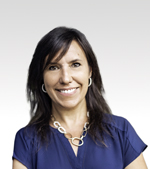
Lindsay Prendergast
Lindsay Prendergast brings nearly two decades of experience in global education, where her roles have ranged from leadership coach to principal, consultant, and classroom teacher. As the Assistant Director of Strategy & Development with the Danielson Group, she collaborates with districts, schools, and educators to promote equitable teaching and learning through the Framework for Teaching. Lindsay’s work centers on leading systems change and advancing instructional leadership with practical and impactful insights. Recognized as an ASCD Emerging Leader and Champion in Education as well as an AAIE Fellow, Lindsay is an established thought leader who frequently shares her expertise on leadership development, growth-centered supervision, and assessment practices through ASCD, Learning Forward, Edutopia, AAIE, EARCOS, AMLE, Cognia, and more. She co-authored bestselling Habits of Resilient Educators: Strategies for Thriving During Times of Anxiety, Doubt, and Constant Change (Corwin, 2024), as well as dozens of articles and manuscripts in the field of education. Driven by a commitment to impactful change and global competence, Lindsay’s work empowers educators to navigate complex challenges, fostering environments where both teachers and students thrive.
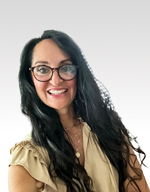
Piper Lee
Over the course of her career, Piper has served students, families, teachers, leadership teams, and undergraduate and graduate students. Most recently, Piper has been supporting district leaders, principals, and educators in one of the largest school districts in the country. While partnering with educators across the country, Piper has learned and lives the philosophy that rigorous relationships help to create transformative schools and impact every aspect of our lives. Piper received her bachelor of arts degree in Elementary Education, her master's degree in Curriculum and Instruction, and her education leadership certification and licensure from Winona State University in
Minnesota.
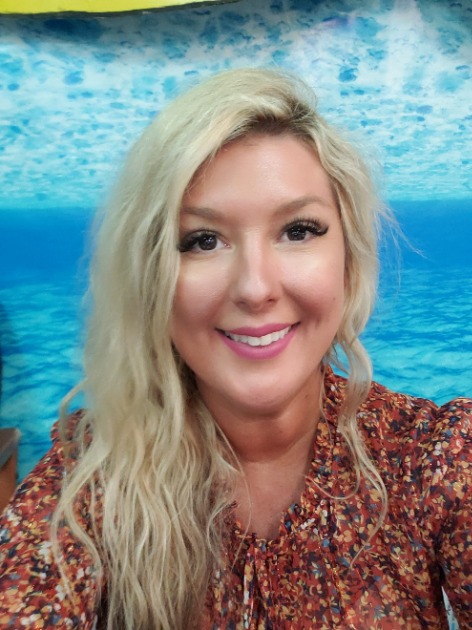
Megan Martens
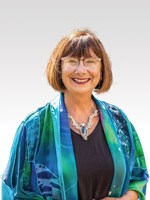
Carol Pelletier Radford
Carol received her Education Doctorate from the Harvard University Graduate School of Education, where she focused her studies on mentoring and teacher leadership. She is also a certified yoga teacher who practices meditation and shares mindfulness strategies with educators through her online courses and website. Her podcast Teaching With Light features the stories of teachers and inspirational leaders. Her next passion project is the creation of a Teacher Legacy Network, where retired teachers can share their wisdom with the next generation of teachers.
You can learn more about Carol, find free resources, videos, meditations, courses, and all of her books at mentoringinaction.com/.
Twitter: @MentorinAction
Facebook: @MentoringinAction4Teachers
Instagram: @cpradford
Related Titles
This is a carousel with related book cards. Use the previous and next buttons to navigate.
Join us for the Visible Learning
Conference in Las Vegas!
Experience groundbreaking research, inspiring speakers,
and transformative networking. Register Now.

